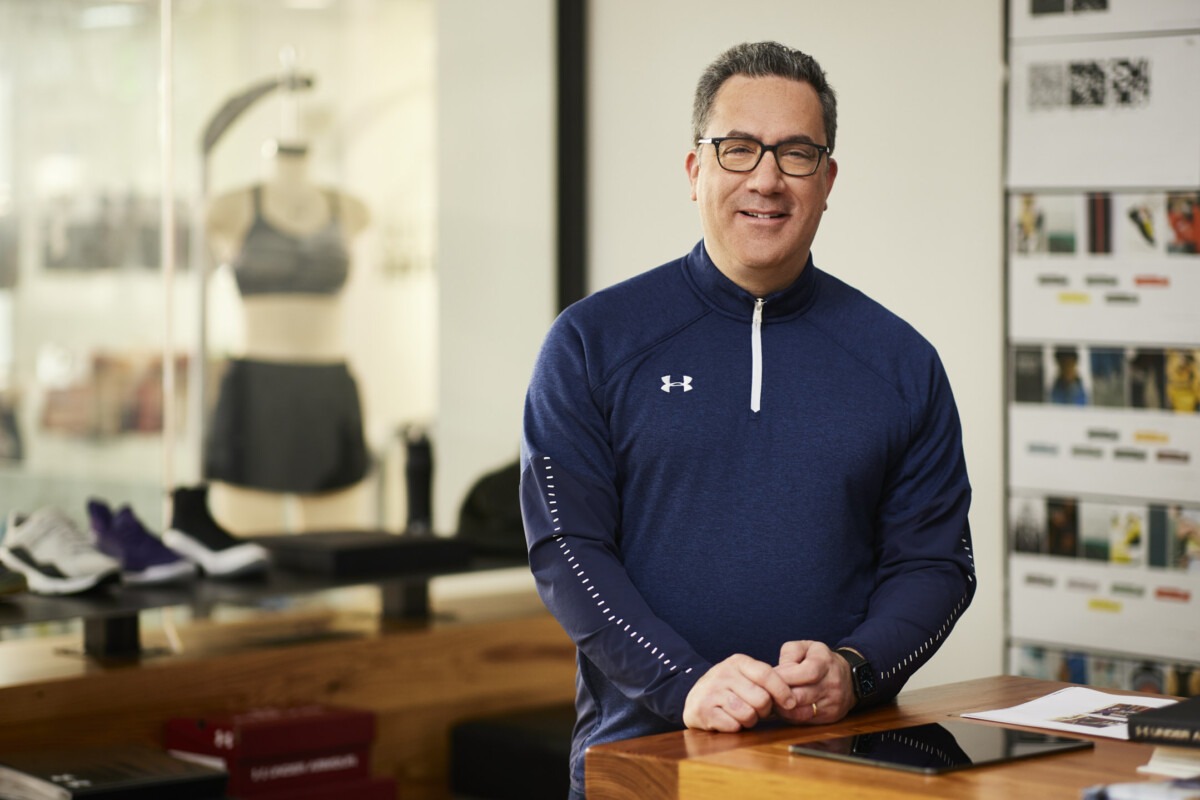Better Buying’s vision statement calls for brands and retailers to work together with responsible purchasing practices to achieve shared goals including profitability. Michael Levine, Chief Sustainability Officer for Under Armour, Inc., explains how purchasing practices and working closely with suppliers are key to delivering profitable growth and building resilient supply chains.
As one of Better Buying’s first subscribers, Under Armour has collected supplier data with us for several years. What first motivated Under Armour to subscribe and why should other brands and retailers join?
At Under Armour, we are a purpose-led, values-based company. Our purpose is: We Empower Those Who Strive for More, and we act upon that purpose through our values: Act Sustainably, Celebrate the Wins, Stand for Equality, Love Athletes and Fight on Together. One of the ways we seek to fulfill our purpose and live our values is by being a good partner to our business partners. Specifically, we’re working to drive coherence between our sourcing and purchasing policies and practices.
Building strong supplier partnerships is crucial to deliver value to our stakeholders and for business continuity, resiliency, and sustainability. To foster strong relationships with our business partners, and support our Responsible Sourcing/Purchasing practices, we partnered with Better BuyingTM.
We view Better Buying’s data as a form of “Supplier Voice,” as suppliers confidentially and anonymously share with Better BuyingTM information that can help us to improve our purchasing practices. Through Better Buying’s report, we “listen” to the supplier voice by acting on this data. This enables us to better understand how our purchasing practices may be affecting them. We seek to continuously improve our responsible purchasing performance by measuring it against standards backed by Better BuyingTM data and illuminated by insights from it.
“We recommend that other brands and retailers consider joining Better BuyingTM … if other customers receive Better BuyingTM data and insights, the potential exists for greater positive impact on supplier business performance and working conditions.”
We recommend that other brands and retailers consider joining Better BuyingTM. Customers’ purchasing practices may contribute to the root cause or aspects of social compliance violations. Often, we’re just one of a supplier’s customers. If other customers receive Better BuyingTM data and insights, the potential exists for greater positive impact on supplier business performance and working conditions. Here, each customer would receive independently from Better BuyingTM supplier data about its purchasing practices and improvement opportunities. Addressing these issues can generate clear business benefits, including better worker engagement, which can reduce absenteeism and increase productivity, and better planning, which can drive greater efficiency, better workplace conditions, reduced overtime hours, and improved quality and delivery.
How is Better BuyingTM, and the supplier data we collect for Under Armour, helping you overcome some of your biggest business challenges?
COVID-19 presented many supply chain challenges to workers and businesses in the apparel and footwear industry value chain. Some of these business challenges include balancing inventories, rising costs, and mitigating delivery challenges.
How do you use your Better BuyingTM data, both with your suppliers and internally within the business, to drive improvements?
We frequently use the Better BuyingTM data with internal stakeholders as that has high potential to drive improvements for suppliers. Our Sustainability team reviews the Better BuyingTM report, sorts the data and free text feedback and shares it with the internal business teams with which we collaborate. To support related governance, we communicate our results and the supplier feedback to our Supply Chain Sustainability and Responsible Sourcing working group, and work with specific internal teams as part of our effort to improve our performance.
We may work on areas such as bulk order placement accuracy, and variance between capacity reserved and actual purchase order quantity. We’re also applying the learnings from the Better BuyingTM reports to enhance our Responsible Sourcing Policy and updating related training materials.
What’s next?
Developing a plan for engaging with Tier 2 suppliers. Tier 2 suppliers are a much bigger population than Tier 1. Additionally, Tier 2 supplier may have more than twenty customers, many of which are Tier 1 suppliers; Tier 1 suppliers have the business relationship with, and are the customers of, the Tier 2 suppliers. There is real value in knowing how Tier 2 suppliers are affected by Tier 1 suppliers’ purchasing practices. Ultimately, it’s the responsibility of Tier 1 Suppliers and the Tier 1 suppliers’ customers, to understand what’s going on, and to drive alignment toward responsible purchasing practices.
Any parting thoughts?
Under Armour is trying to continuously improve its purchasing practices by listening to our vendors and suppliers about how we may be a better partner to them. Purchasing responsibly from them supports mutually beneficial relationships and lays the foundation for a resilient and just value chain and improved workplace conditions.
*Better BuyingTM surveys can be cascaded across a brand’s wider supply chain to achieve greater oversight of the purchasing practices of direct suppliers and business partners. Brands can ask Tier 1 suppliers, labels, tags, times and packaging suppliers as well as wholesalers and licensees to subscribe to the Better Buying Partnership IndexTM, be rated by their suppliers, and to share the report with them.








